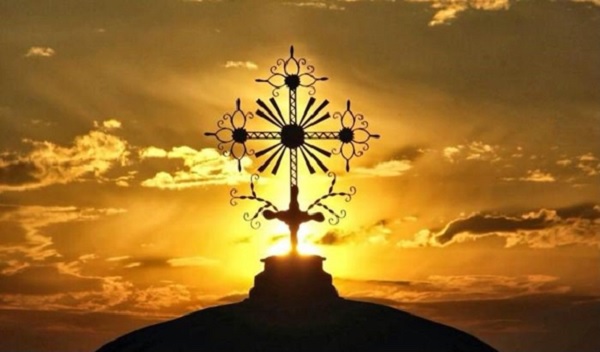Conversations with Father Zacharias – The Crucified eros
16 September 2020Question: If earthly life without the love of Christ is deprived of all good, how much more is this true in the other world? Living without this love will be ‘the gnashing of teeth’ (Matt. 8:12), ‘the worm that dies not’ (Mark 9:44).
Archim. Zacharias: One cannot live with God unless one is in love with Him. Walking towards his martyrdom, Saint Ignatius was speaking like one in love, saying, ‘My love is crucified.’ This means that his love was spiritual, pure and holy, but the only way to express it with some sort of resemblance was through human eros. When people are in love, they have this fierce, irresistible eros; they cannot think of anything else and desire to speak to their beloved and be with them continually. It is the same with God. We cannot be saved unless we are in love with Christ. We cannot think of or find pleasure in anything else. We unceasingly sigh and feel as if our heart is tied with a rope that continually pulls us upwards. These are the ‘unutterable groanings’ of the heart of man (cf. Rom. 8:26). In such a state, one must be mindful not to show any external sign of piety, for that would diminish grace. If we want to be with Christ, we must come to this kind of eros, we must feel that our heart is at all times sizzling with a pure, luminous, sweet pain, which makes it impossible for anything to separate us from the love of Christ (Rom. 8:35). Then love for Christ is stronger than death.

There is not a greater assurance than grace living in our bodies, for then we know that we are being saved. Grace begins to live in our bodies from the moment we begin to acquire contrition. In the Greek word κατάνυξις, νύξις means ‘scratch’; it is a scratch made in the heart with a pointed knife. This is a concrete proof that we have received the earnest of salvation. In order to keep this scratch alive and make it even a wound, we need to always keep the spirit of repentance. From the moment contrition comes, grace begins to live in our body, that scratch grows and becomes pain, a life-giving wound, which is diffused to our whole body. Then it becomes κατάστασις (a state). When grace lives in our body in this way, our heart is informed that even though we die, we shall live (see John 11:25). Then, we shall know that Someone has put a seal on us, that we belong entirely to Him. Contrition is so precious, because it is the beginning of salvation, the beginning of grace dwelling in the body of man. At the end of this road we find the end of the law (Rom. 10:4), which is that fierce love, that crucified eros that Saint Ignatius was speaking about. This eros is what promotes the greatest miracle of the union of the heart of man with the Spirit of God. How can we acquire this right kind of love? When the Lord appeared to Peter after His Resurrection, He did not ask him anything else but, ‘Simon, son of Jonas, lovest thou Me?’ and he replied, ‘Yea, Lord; Thou knowest that I love Thee’ (John 21:15). Saint Silouan says that likewise, when we meet the Lord, He will not ask us anything else but, ‘Lovest thou Me?’ Our heart will tell us if we have this love for Him and then we can be with Him eternally. It is not a juridical matter and I do not think He will sit down to judge people endlessly about that incident or the other. However, we will be judged if through all those incidents, we have made ourselves useless, unable to love God in that fierce way, which makes us acceptable to live in His courts for ever (see Ps. 92:13).
Question: Why was it necessary for Saint Silouan to experience eternal perdition for one hour?
Archim. Zacharias: In order to learn humility. God allows us to be tried so that we may become more humble and receive more grace. The benefit will be ours. It is not important from where the temptation comes, but it is important that we resist it. ‘Resist the devil, and he will flee from you. Draw nigh to God and He will draw nigh to you’ (Jas. 4:7-8). By humbling ourselves, we resist the devil, but we also draw nigh to God. There is no other way to be saved and unite with Christ, but through love. It is only by contrast that we bring victory. I have seen people who repent, but they live in sin and do not realise it. Yet, the moment comes when they receive some grace and they see such a contrast between their former life and that which they experience through grace, that they can no longer return to their sinful life. If after this experience of grace they fall back again, their whole being is shaken, and this can be so trying and painful that they may even die. This is what we see in the chapter about the prison from ‘The Ladder’. It is evident that only when people are wounded by the love of Christ and by the beauty of His Countenance, they can overcome sin and be united with Him in a definite and enduring way. The contrast in the life of Saint Silouan was that he moved between hell and the love of God. Those who experience all the range of this contrast become very determined and will not yield to the passions.






